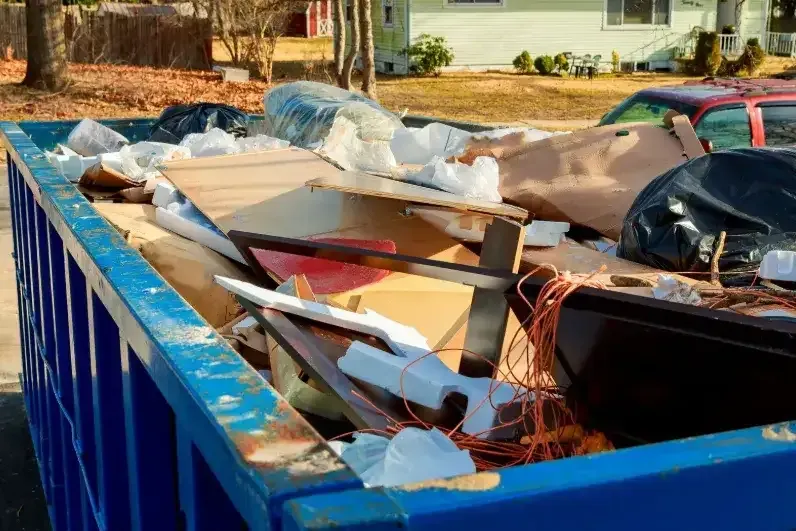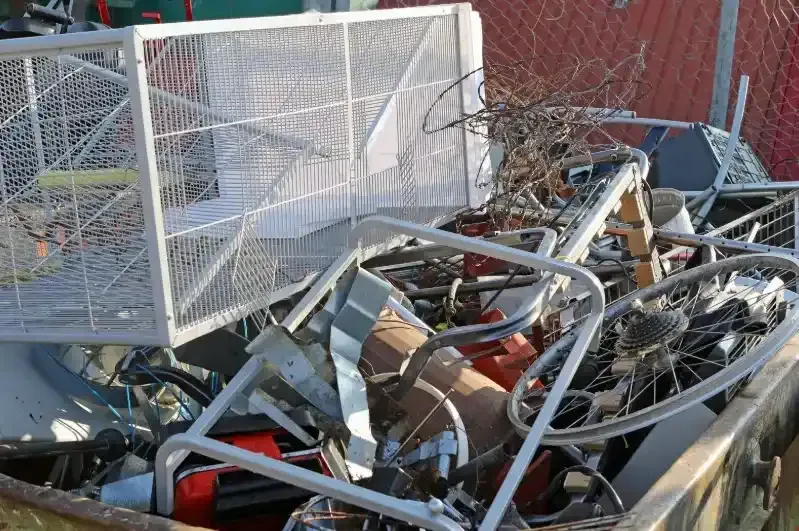The Environmental Benefits of Demolition Cleanup
When a building reaches the end of its useful life or a construction project demands a fresh start, demolition often becomes a necessary step. However, demolition is not merely about knocking down walls and tearing up foundations—it involves a crucial process of managing waste and minimizing environmental harm. The demolition process generates large amounts of debris, much of which can end up in landfills if not properly handled. By implementing responsible demolition cleanup practices, waste can be reduced, and valuable materials can be repurposed or recycled.
From salvaging metals and wood to recycling concrete and plastics, each step helps decrease the environmental footprint of the demolition process. Moreover, it ensures that hazardous materials such as asbestos or lead paint are properly removed and disposed of to avoid health risks. In this post, we’ll discuss the key environmental benefits of proper demolition cleanup and why businesses, contractors, and homeowners should prioritize sustainable practices in their demolition efforts.
Reducing Landfill Waste
One of the most significant environmental impacts of demolition is the large amount of waste it generates. Traditional demolition often leads to tons of debris being discarded directly into landfills. These landfills, already overflowing with garbage, become even more burdened with materials that could otherwise be recycled or repurposed.
Demolition cleanup, when done responsibly, significantly reduces the amount of waste sent to these landfills. Salvaging materials such as metals, concrete, and wood can keep them out of landfills and allow them to be repurposed. For instance, steel and other metals can be melted down and reused in new construction projects. Concrete can be crushed and used for road construction or as fill material. Even wood, which might seem like a waste, can be reused in other construction or renovation projects. This proactive approach not only decreases landfill overflow but also saves raw materials, which have their own environmental footprint.

Recycling and Repurposing Building Materials
Demolition cleanup offers an opportunity to recycle and repurpose materials that otherwise might go to waste. This process requires careful sorting of materials during the demolition phase. By hiring professional cleanup crews with an eye for detail, contractors and homeowners can ensure that materials such as bricks, metals, and plastics are properly separated and sent to recycling centers instead of being sent to the landfill.
Recycling building materials has an immediate positive impact on the environment. By diverting materials from landfills, the demand for new raw materials is reduced, thus conserving natural resources. Recycling metals like aluminum, copper, and steel saves significant amounts of energy compared to mining new metals, which is an energy-intensive process. Repurposing materials also reduces the need for new products, which leads to less energy consumption and fewer carbon emissions associated with manufacturing.
Reducing Pollution and Carbon Footprint
Demolition, especially when done haphazardly, can contribute to significant pollution. Dust, debris, and airborne particles can contaminate the surrounding environment, harming local ecosystems and potentially causing health issues for nearby residents. Proper demolition cleanup minimizes this pollution by using tools and techniques that contain debris and reduce dust.
Moreover, the process of recycling and reusing demolition materials helps to lower the overall carbon footprint. The manufacturing process for new building materials, such as cement, steel, and glass, requires a large amount of energy and produces significant CO2 emissions. By reusing these materials from a demolition site, the need for new manufacturing is reduced, thus contributing to lower emissions and a smaller environmental impact.
Protecting Local Ecosystems
Construction and demolition can severely disrupt local ecosystems if not properly managed. The destruction of buildings and structures can lead to soil erosion, habitat destruction, and contamination of local water sources. However, with effective demolition cleanup practices, these negative impacts can be mitigated.
For example, when demolition crews use water trucks to suppress dust, they prevent soil and air contamination, ensuring that local wildlife is not harmed by airborne debris. When materials are salvaged and recycled, the ecosystem benefits because fewer new resources are needed, which lessens the strain on natural environments. Furthermore, avoiding the unnecessary disposal of hazardous materials, such as asbestos or lead paint, ensures that nearby ecosystems and water sources are not polluted.
Supporting Sustainable Construction Practices
Demolition cleanup doesn’t just help the environment in the short term—it also plays a pivotal role in fostering long-term sustainability. When businesses and construction companies choose to implement green demolition practices, they set a precedent for more sustainable building practices in the future. This not only helps to protect the planet but also encourages innovation within the construction industry.
Sustainable demolition practices align with the growing movement toward green building certifications, such as LEED (Leadership in Energy and Environmental Design). These certifications promote energy efficiency, water conservation, and sustainable building materials. By incorporating demolition cleanup into the broader framework of sustainable construction, contractors and developers can reduce the environmental impact of both the demolition and the new build. It’s a way to embrace eco-conscious construction from start to finish, ensuring that both the demolition and construction phases contribute to a healthier planet.
6. Promoting Community Health and Well-Being
Demolition projects, particularly in urban areas, can affect the health of surrounding communities. Dust, noise, and debris from demolition sites can have a negative impact on air quality and contribute to respiratory issues for those living nearby. Furthermore, hazardous materials, such as lead, asbestos, and mercury, pose serious health risks if they are not handled properly.
Effective demolition cleanup not only minimizes these risks by using appropriate safety measures, such as dust suppression techniques and protective gear, but it also helps to prevent the release of toxic materials into the environment. By ensuring that hazardous materials are properly removed and disposed of, cleanup crews can protect both the local community and the broader environment from contamination. This is particularly important in residential areas or urban settings, where the population density is higher, and the exposure to pollutants can have more widespread health effects.
Enhancing the Aesthetic Appeal of the Area
While this may not be the first consideration when it comes to the environment, proper demolition cleanup contributes to the overall aesthetic value of the area. A clean demolition site is far more pleasant to look at than a debris-filled lot, which may sit abandoned for months or even years before being developed. A well-maintained cleanup process ensures that the site is ready for redevelopment, which can have a positive impact on the community's appearance and property values.
Not only does this enhance the surrounding neighborhood, but it can also contribute to the local economy. When areas are cleaned up and made safe for development, businesses and residential developers are more likely to invest in the area, which leads to job creation and community growth. By making demolition cleanup a priority, cities and towns can encourage development that benefits both the environment and the economy.
Legal and Regulatory Compliance
Many cities and municipalities have strict laws and regulations in place concerning demolition and waste disposal. These laws are designed to ensure that demolition waste is disposed of responsibly and that hazardous materials are removed in compliance with environmental standards. Failure to adhere to these regulations can lead to hefty fines and legal repercussions, as well as damage to a company’s reputation.
A thorough demolition cleanup ensures that these legal obligations are met. Professional cleanup services are well-versed in local regulations and can ensure that the site is compliant with all environmental laws. This not only helps businesses avoid fines but also demonstrates a commitment to corporate social responsibility. Following the law also ensures that the project proceeds smoothly without delays, creating a win-win situation for contractors and the environment alike.
Cost Savings through Efficient Waste Management
Another benefit of effective demolition cleanup is the potential for cost savings. Though some might assume that responsible demolition practices are more expensive, the reality is quite the opposite. By salvaging and recycling materials, demolition companies can offset some of the costs associated with the removal and disposal of waste. Materials that are sent to recycling centers can be sold or reused, which can help reduce the overall cost of the project.
Moreover, cleaning up a demolition site efficiently reduces the need for expensive environmental remediation efforts down the road. It’s far less costly to address potential hazards during the cleanup phase than to deal with contamination or pollution after the fact. Taking a proactive approach to waste management and material recovery can provide long-term financial benefits while simultaneously benefiting the environment.
Conclusion
Demolition cleanup is a vital component of responsible construction and renovation practices. By focusing on waste reduction, recycling, and the proper disposal of hazardous materials, we can significantly minimize the environmental impact of demolition projects. This thoughtful approach not only helps reduce the amount of waste sent to landfills but also promotes resource conservation by reusing and recycling materials. Additionally, by ensuring the safe removal and disposal of harmful substances like asbestos or lead paint, we safeguard both the environment and public health. Embracing sustainable demolition practices not only benefits the immediate area but also contributes to a broader commitment to protecting our planet. By supporting such practices, we ensure that future generations will inherit a cleaner, healthier world.
At Lasso & Load Junk Removal, we are dedicated to making demolition and junk removal as environmentally friendly as possible. Serving Gwinnett County and the surrounding areas, our experienced team takes great care in handling your demolition cleanup needs while promoting sustainability and reducing waste. If you're looking for dependable, eco-conscious junk removal services, don't hesitate to contact us at 404-227-2017 or email us at Lauren.renwickk@gmail.com. Let us help you create a cleaner, greener environment.









